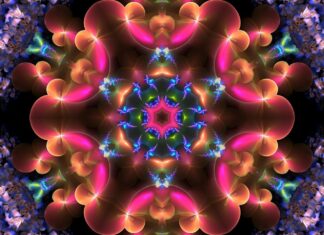Synthetic Biology: Unleashing the Potential of Engineered Life
In the realm of scientific innovation, the convergence of biology, engineering, and technology has given rise to a field known as Synthetic Biology. This emerging discipline has captured the imagination of researchers, engineers, and visionaries alike, as it offers the promise of reshaping the very fabric of life itself. At its core, Synthetic Biology is the deliberate engineering of biological systems, encompassing the design, construction, and optimization of novel biological components, pathways, and organisms. By harnessing the power of genetic code manipulation, Synthetic Biology opens up avenues to create organisms with unprecedented functionalities, revolutionizing industries, advancing medical treatments, and addressing pressing environmental challenges. This article delves into the fascinating world of Synthetic Biology, exploring its principles, applications, and the ethical considerations it raises.
Engineering Life: The Essence of Synthetic Biology
At the heart of Synthetic Biology lies a fundamental concept: the ability to treat biology as a programmable medium, akin to computer code. Traditional biology is governed by complex networks of genetic information, which determine the traits, functions, and behaviors of organisms. Synthetic Biology takes this inherent biological language and reimagines it as a malleable tool, allowing scientists to write, edit, and execute genetic programs. This concept draws inspiration from various fields, including molecular biology, genetics, bioinformatics, and engineering, amalgamating them into a multidisciplinary approach.
The process of Synthetic Biology involves designing genetic sequences using standardized genetic parts, such as promoters, genes, and terminators, much like assembling building blocks. These sequences are then inserted into host organisms, often microbes like bacteria or yeast, where they integrate and initiate the desired biological processes. Researchers can create new metabolic pathways, optimize existing ones, or even engineer cellular functions that do not exist naturally. This capacity to fabricate biological systems with precision and predictability bestows scientists with unprecedented control over life’s fundamental processes.
Applications Across the Spectrum
The scope of Synthetic Biology’s applications is as diverse as it is revolutionary. One of the most prominent domains where Synthetic Biology has made significant strides is biomedicine. By engineering microorganisms to produce therapeutic compounds or harnessing their capabilities to detect and treat diseases, researchers are envisioning a future where illnesses are confronted with tailored biological solutions. Insulin production by genetically modified bacteria, biosensors for detecting specific molecules in the body, and even the potential for personalized gene therapies exemplify the transformative potential of Synthetic Biology in healthcare.
Beyond the confines of the laboratory, Synthetic Biology intersects with agriculture and the production of food. The ability to optimize crop yields, enhance nutrient content, and develop plants resilient to harsh environmental conditions could play a pivotal role in addressing global food security. Imagine crops capable of thriving in arid regions or producing higher levels of essential nutrients, all achieved through genetic manipulation guided by Synthetic Biology principles.
In the realm of environmental conservation, Synthetic Biology offers innovative approaches to remediate pollution, reduce waste, and mitigate the impact of climate change. Engineered microorganisms could be deployed to clean up oil spills, while carbon dioxide-absorbing organisms might contribute to combating greenhouse gas emissions. The potential of Synthetic Biology to create sustainable solutions aligns with the growing urgency to safeguard our planet’s delicate ecosystem.
Ethical and Societal Considerations
While the possibilities presented by Synthetic Biology are undeniably exciting, they also raise complex ethical and societal dilemmas. As the boundaries between natural and engineered life blur, questions arise about the potential consequences of releasing genetically modified organisms into the environment. Contemplations about unintended ecological disruptions, the spread of synthetic genes to wild populations, and the long-term effects of engineered organisms are paramount.
Moreover, the ability to modify human genes, although currently subject to rigorous regulations, kindles discussions about the morality of altering human nature. The potential to eliminate genetic diseases or enhance cognitive and physical abilities brings both hope and apprehension. Striking a balance between scientific advancement and responsible innovation is crucial to navigate these uncharted ethical waters.
Looking Ahead: Challenges and Future Prospects
The journey of Synthetic Biology is not devoid of challenges. Ensuring the safety of engineered organisms, predicting their behavior in complex environments, and establishing comprehensive regulatory frameworks are all integral to the responsible development of this field. The dynamic nature of biological systems and the intricacies of genetic interactions demand meticulous research and iterative experimentation.
Looking ahead, Synthetic Biology holds the promise of delivering groundbreaking solutions to some of humanity’s most pressing challenges. From revolutionizing healthcare and agriculture to propelling advancements in sustainable energy and biomanufacturing, the potential applications are boundless. As this discipline matures, collaborations between scientists, policymakers, ethicists, and the public become increasingly essential to guide its trajectory in ways that are both beneficial and ethically sound.
Conclusion
Synthetic Biology stands at the nexus of scientific innovation and creative exploration. It embodies the human desire to not merely understand life’s intricate mechanisms but to redesign and repurpose them for the betterment of society. This fusion of biology and engineering opens doors to a future where diseases are treated with tailored organisms, where food scarcity is mitigated through optimized crops, and where environmental challenges are met with sustainable solutions. Yet, with this power comes a responsibility to wield it wisely, considering the ethical implications and potential consequences of engineering life. As Synthetic Biology continues to unfold, humanity is presented with an opportunity to shape a world where the boundaries of what is natural and what is designed become increasingly blurred, paving the way for a new era of scientific and technological marvels.
Genetic Engineering Mastery:
Synthetic Biology involves precise manipulation of genetic material, allowing scientists to design and engineer DNA sequences with specific functions, traits, and behaviors.
Standardized Parts: The field employs standardized genetic components, such as promoters, genes, and terminators, which can be combined like building blocks to create complex biological systems.
Predictive Modeling:
Researchers use computational tools and bioinformatics to model and predict the behavior of engineered biological systems, enhancing the design process and reducing trial-and-error experimentation.
Biological Circuitry:
Similar to electronic circuits, Synthetic Biology develops biological circuits with interconnected genetic elements that process input signals and produce desired outputs, enabling programmable and controllable behavior in organisms.
Metabolic Pathway Engineering:
Synthetic Biology pioneers the creation of novel metabolic pathways within microorganisms, enabling production of valuable compounds like pharmaceuticals, biofuels, and industrial chemicals.
Minimal Genome Design:
Scientists aim to identify the minimum set of genes necessary for life, shedding light on the essential components of organisms and facilitating the creation of synthetic minimal genomes.
Cell-Free Systems:
Synthetic Biology extends beyond living cells to cell-free systems, where biological processes are recreated in test tubes, enabling rapid prototyping and experimentation.
Biosecurity Measures:
Due to the potential risks associated with synthetic organisms, the field emphasizes rigorous biosecurity protocols to prevent accidental or malicious release of engineered organisms into the environment.
Ethical Considerations:
Synthetic Biology raises ethical questions about altering nature, modifying human genetics, and ecological impact. The field engages in ongoing dialogues to ensure responsible innovation.
Interdisciplinary Collaboration:
Success in Synthetic Biology requires collaboration between biologists, engineers, computer scientists, ethicists, policymakers, and society at large to navigate the scientific, ethical, and regulatory challenges of the field.
Synthetic Biology: Fusing Nature and Ingenuity for a New Era of Possibilities
In the intricate dance between science and nature, there emerges a field that blurs the lines between the biological and the engineered – Synthetic Biology. This captivating realm of scientific exploration harnesses the essence of life itself, molding it into shapes that extend beyond the boundaries set by evolution. At its core, Synthetic Biology is more than just the manipulation of genetic code; it’s an intricate symphony of disciplines, an orchestra of ideas playing to the rhythm of innovation. As this field gains momentum, its impact on diverse domains becomes increasingly evident, reshaping industries, sparking medical revolutions, and confronting environmental challenges with ingenuity and creativity.
At the heart of Synthetic Biology lies the audacious idea of treating biology as an engineering endeavor. It’s an endeavor where scientists, equipped with the toolbox of genetic manipulation, strive to orchestrate the harmonious interplay of biological components to compose novel functionalities. Through careful arrangement of genetic sequences – the blueprint of life – researchers construct biological systems akin to architectural designs. These blueprints are then brought to life within the cells of microorganisms, transforming them into living factories, catalyzing reactions that nature had never quite envisioned.
Yet, the essence of Synthetic Biology transcends mere scientific curiosity. It taps into the unyielding human spirit of innovation, channeling it into realms once thought to be the sole dominion of nature. The impact of this field permeates far beyond the confines of the laboratory. Picture a world where diseases, once deemed insurmountable, are tackled head-on through the creation of customized organisms capable of producing targeted therapies. Imagine the agricultural landscape shifting as engineered crops adapt to changing climates, bolstering food security across the globe. Consider the planet’s environmental challenges, from carbon emissions to plastic pollution, being addressed through the deployment of synthetic organisms designed to devour waste and cleanse ecosystems.
In the realm of healthcare, Synthetic Biology crafts a tapestry of possibilities that are both awe-inspiring and revolutionary. Microbes, traditionally viewed as disease-causing agents, are transformed into microscopic factories churning out life-saving drugs. Insulin, a hormone crucial to diabetes management, is no longer confined to traditional manufacturing processes but can be synthesized within engineered cells. Biosensors, crafted with precision, become tools for early disease detection, ushering in an era of proactive medical interventions.
And it doesn’t end there. As we peer into the future, the prospect of custom-made organisms, each tailored to address specific medical needs, beckons. The very fabric of our genetic makeup becomes a playground for innovation, with gene therapies and regenerative medicine offering new avenues to alleviate human suffering. The realm of Synthetic Biology bridges the gap between science fiction and reality, urging us to embrace a future where science’s wildest dreams materialize into everyday breakthroughs.
Agriculture, too, reaps the benefits of this scientific renaissance. The age-old struggle against pests and diseases takes on a new dimension as crops are fortified with resistance genes and pathogens are thwarted by cleverly engineered defenses. Genetic modifications are not just about increasing yields but also about enhancing the nutritional content of crops, addressing malnutrition in vulnerable populations. This biotechnological ballet between nature and human ingenuity promises a future where food production aligns harmoniously with the needs of a burgeoning global population.
Environmental challenges, arguably some of the most pressing issues of our time, are met headlong by the transformative potential of Synthetic Biology. Engineered microorganisms become foot soldiers in the battle against pollution. Oil spills, once symbols of environmental devastation, may one day be cleaned up by microscopic entities with an innate hunger for hydrocarbons. Carbon dioxide, the notorious culprit behind climate change, might be harnessed by synthetic organisms capable of transforming it into valuable resources. The boundaries of nature and technology blur as these synthetic soldiers venture into the fray, seeking to restore ecological balance.
Yet, amidst the symphony of scientific progress, a sobering note emerges. The ethical considerations of Synthetic Biology are a chorus of caution that resounds through laboratories and conference halls. The ability to rewrite the code of life brings with it the weighty responsibility of foreseeing unintended consequences. The unpredictable interactions between engineered organisms and natural ecosystems demand prudence. The notion of creating synthetic life forms, even those designed to improve human well-being, stirs ethical debates about the boundaries of creation and the potential repercussions of usurping nature’s role.
The specter of biosecurity also casts its shadow. The power to engineer organisms with specific functions raises concerns about their potential misuse, intentional or otherwise. Rigorous protocols and regulations are thus not only safeguards against accidental release but also vital measures to thwart the deliberate creation of biological agents with harmful intent.
As the journey of Synthetic Biology unfolds, one thing becomes clear: this field is not defined solely by its scientific prowess. It’s a collaborative symposium, bringing together scientists, ethicists, policymakers, and the public. It’s a platform where dialogues about ethics, risks, benefits, and societal implications resonate as loudly as the scientific breakthroughs themselves. The evolution of Synthetic Biology isn’t just about manipulating genetic material; it’s about shaping a world where science is in harmony with humanity’s values and aspirations.
In conclusion, Synthetic Biology isn’t merely a scientific discipline – it’s a gateway to a future where the boundaries of what’s natural and what’s engineered intertwine in unexpected ways. It’s a testament to human imagination and creativity, where the mysteries of life are unraveled, and new chapters are written in the story of evolution. It’s a realm that invites us to be pioneers, dreamers, and stewards of knowledge, guiding this field toward advancements that benefit society, preserve ecosystems, and inspire generations to come. The journey of Synthetic Biology is a symphony of innovation, and its music resonates across generations, transforming science fiction into science fact.
Synthetic Biology: A Symphony of Science and Creation
Synthetic Biology stands as a testament to human ingenuity and our ceaseless quest to unravel the mysteries of life. It’s a canvas upon which science, technology, and imagination converge to create an intricate tapestry of possibilities. At its essence, Synthetic Biology beckons us to peer beyond the conventional boundaries of biology, inviting us to reshape and redefine the very fabric of living organisms.
This realm of scientific exploration goes beyond the lab benches and research papers; it’s a realm where the visions of scientists have the potential to transform industries, rewrite medical narratives, and address some of the most pressing challenges that humanity faces. The threads that bind this tapestry are diverse – they weave together biology, engineering, ethics, and philosophy into a narrative of innovation.
The journey of Synthetic Biology is akin to an artistic creation. Just as a sculptor molds clay or a painter wields a brush, scientists manipulate genetic material to sculpt biological entities with newfound traits and abilities. This creative endeavor requires a deep understanding of the fundamental building blocks of life – the nucleotides that make up DNA, the intricate dance of proteins, and the orchestration of metabolic pathways. Yet, it also requires a willingness to traverse uncharted territories, pushing the boundaries of what is possible within the realm of biological systems.
While the concept of Synthetic Biology might seem like a break from the natural order, it’s perhaps more of a continuation – a continuation of the curiosity that has driven humans to explore and understand their environment. We have always sought to harness nature’s mechanisms for our benefit – from cultivating crops to domesticating animals. Synthetic Biology is the latest chapter in this ongoing saga of human interaction with the living world. It embodies the philosophy that if we can decipher the intricate language of life, we can compose new symphonies of existence, harmonizing the notes of nature with the melodies of our aspirations.
Consider the vast canvas of healthcare. Synthetic Biology extends an invitation to reimagine how we approach disease, treatment, and prevention. The ability to engineer microorganisms to produce specific therapeutic compounds offers a revolutionary approach to drug manufacturing. It transforms bacteria into microscopic factories, churning out medications that were once laboriously extracted or chemically synthesized. This shift has the potential to make life-saving treatments more accessible, revolutionizing the pharmaceutical industry.
Moreover, Synthetic Biology compels us to rethink our relationship with nature. Nature, often perceived as an unyielding force, becomes a malleable medium under the touch of Synthetic Biology. While this shift introduces immense promise, it’s accompanied by the ethical responsibility to consider the impact of our actions. The act of introducing genetically modified organisms into ecosystems raises questions about the potential disruptions and unforeseen consequences. It’s a reminder that the tapestry of Synthetic Biology is woven not only with threads of possibility but also threads of caution and circumspection.
A realm of equal significance is that of bioenergy and biomanufacturing. Traditional methods of energy production and manufacturing have often come at the cost of environmental degradation and resource depletion. Synthetic Biology introduces the notion of sustainable production through engineered microorganisms. These microscopic entities, fueled by sunlight or waste materials, can generate biofuels, bio-plastics, and other valuable products. This transition to bio-based production aligns with the global push toward more environmentally friendly practices, offering a harmonious synthesis between technological advancement and ecological preservation.
And what of the narratives that have long been etched in our genetic code? Synthetic Biology whispers of a future where genetic disorders are treated not only with pharmaceuticals but also through direct manipulation of our genetic material. The potential for gene editing tools to correct mutations and eliminate hereditary diseases offers a glimpse into a medical utopia. But with this power comes the duty to tread cautiously, for altering the genetic fabric of life also raises profound ethical questions about the boundaries of intervention and the consequences of tampering with the essence of who we are.
As the canvas of Synthetic Biology unfolds, it’s clear that it’s not merely a realm for scientists. It’s a shared canvas, inviting a spectrum of voices to join the conversation. Ethicists ponder the moral implications, policymakers navigate the regulatory frameworks, and artists infuse the science with cultural and societal perspectives. This fusion of disciplines makes Synthetic Biology a reflection of our collective curiosity and aspirations.
In the grand tapestry of Synthetic Biology, every discovery is a stroke of innovation, every experiment a brushstroke of creativity. It’s a story that speaks to the tenacity of the human spirit – our audacity to dream, create, and mold the world around us. The tapestry is far from complete; its patterns are still emerging, its colors still blending. As we embark on this journey, we are not just observers; we are weavers, contributors to a narrative that transcends time and disciplines. Synthetic Biology is a canvas of life, woven with threads of knowledge and imagination, and it beckons us to continue painting the story of our future.






















